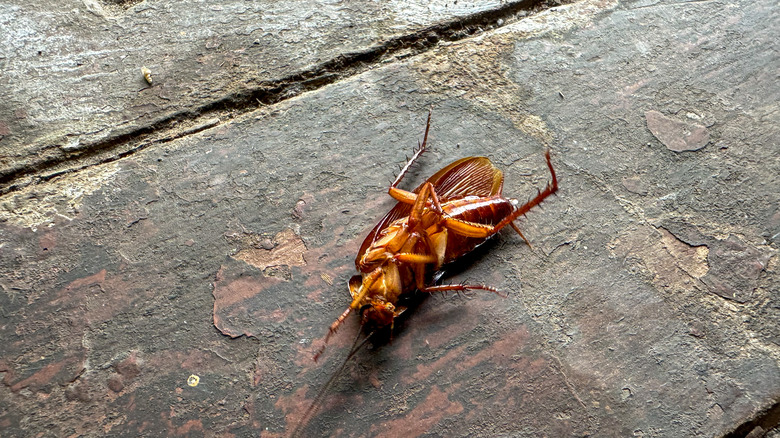How To Keep Cockroaches Out Of Your Hot & Humid North Carolina Home
If you've been seeing any in your home, you're probably ready to get rid of cockroaches forever. Unfortunately, if you see one, there are likely dozens more hiding out of sight. Cockroaches are incredibly resilient, multiply fast, and thrive in North Carolina's hot and humid climate. Combine that with a steady stream of summer rainfall and warm nights, and you've got a recipe for a cockroach haven, especially in older or poorly sealed homes.
These pests don't just give you the ick; they're known carriers of bacteria like Salmonella and E. coli, and their droppings and shed skins can worsen indoor allergies and asthma. Roaches tend to sneak in through open doors and windows, tiny cracks, or even plumbing gaps. Once inside, they look for dark, damp hiding spots, food, and water (think under sinks, behind appliances, and in cluttered storage areas).
The good news is you don't need to live with them. The first step is to make your home inhospitable. A combination of regular cleaning, sealing entry points, and reducing moisture can send roaches packing. For local residents in North Carolina, proactive pest prevention is the best long-term strategy, especially during the warmest months when roaches are most active.
How to make your home unlivable for cockroaches
To keep cockroaches out for good, you'll need to do more than just spray and pray. Start by cutting off their access to what attracts them in the first place: food, moisture, and easy entry. That means staying on top of cleaning, especially in the kitchen. Wipe down counters daily, avoid leaving dirty dishes in the sink overnight, and store all food (including pet food) in sealed containers. Don't forget the trash: Take it out regularly and clean the bin itself every week or two.
Next, address leaks and moisture. Fix any drips under sinks or in bathrooms, and run a dehumidifier if you have a particularly humid room or basement. Roaches love damp areas, so drying them out is essential. Additionally, seal the gaps where roaches might sneak in. Use weatherstripping on doors, caulk around windows, and plug any holes around pipes or baseboards. Outdoors, trim plants and shrubs away from the house to reduce hiding spots, and clean out your gutters (debris buildup can trap moisture). This kind of upkeep is especially important in North Carolina, where the weather makes homes more vulnerable to infestations. By maintaining cleanliness and reducing access points, you'll make your home a lot less welcoming to these unwelcome guests.
Natural remedies and targeted treatments to stay roach-free
Once your home is clean and sealed, it's time to reinforce your defenses. For a natural approach, you can spray diluted essential oils around baseboards, under sinks, and along doorways. Or, you can get rid of unwanted roaches with a concoction of baking soda and an onion. Onion baits them, while baking soda will make gas buildup in their stomachs and ultimately damage their digestive system, but it takes a day or two. You can also sprinkle diatomaceous earth, a powdery substance that's safe for humans and pets but deadly to insects, in dry areas where roaches may hide. Just be sure to wear a mask to avoid inhaling it.
An even easier method is putting sticky traps behind the fridge, under the stove, or anywhere dark and warm. The little-known tip you need to effectively get rid of roaches for good is to rotate the placement and type of traps every few weeks so roaches don't adapt. Bait stations are another solid option — just be sure to follow the instructions and keep them out of reach of pets or small children. For a more aggressive approach, look for insecticides specifically labeled for cockroach control, especially gel baits and residual sprays. If you've tried everything and they're still crawling, it's time to call in a local pest control expert who knows how to handle North Carolina's most persistent critters. Whether you go the DIY route or hire help, the key is consistency, because cockroaches are nothing if not stubborn. But with the right strategy, your home can stay roach-free and healthy all year long.


